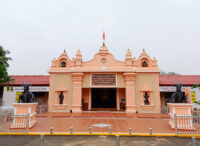Health authorities have issued an urgent public advisory following a noticeable rise in reported cases of Leptospirosis, commonly known as “rat fever”, across multiple districts in Sri Lanka.
According to the Epidemiology Unit of the Ministry of Health, a growing number of infections have been recorded in Ratnapura, Kurunegala, Kegalle, Gampaha, and Kalutara districts.
Community medicine specialist Dr. Thushani Dabarera, addressing a media briefing at the Health Promotion Bureau, said the disease is caused by a bacterium transmitted primarily through the urine of infected mammals, especially rodents.
“This bacterium lives in the urinary systems of rats. When these animals urinate in water sources or soil, the bacteria remain viable and can infect humans who come into contact with contaminated surfaces. Paddy farmers, miners, and individuals working in flood-affected fields or areas known as keerakotu are especially at risk,” Dr. Dabarera said.
She stressed the importance of early detection and protective measures for those regularly exposed to muddy or stagnant water, urging the public to use boots and gloves during agricultural or outdoor work and to seek medical attention promptly if symptoms emerge.
Symptoms of Leptospirosis include high fever, chills, muscle aches, vomiting, and, in severe cases, kidney or liver complications.
Meanwhile, Consultant Paediatrician at Lady Ridgeway Hospital, Dr. Kosala Karunaratne, warned of seasonal outbreaks of fever among children during the monsoon period.
“At this time of year, we see multiple cases of what we refer to as ‘sour fevers.’ These include dengue, rat fever, influenza, Chikungunya, and gastrointestinal infections accompanied by fever,” he said.
Dr. Karunaratne urged parents to seek immediate medical care if their child exhibits symptoms such as high fever, persistent vomiting, abdominal pain, or difficulty passing urine, cautioning that delays in treatment could lead to complications.











Leave a comment